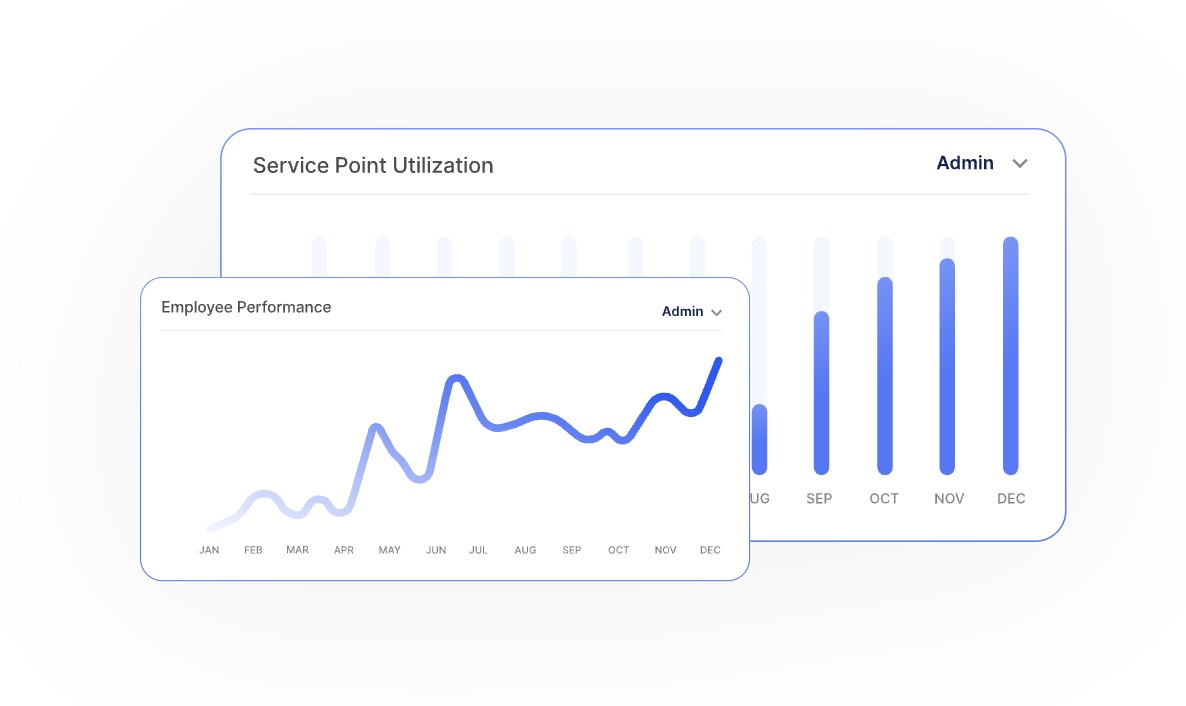A lost booking rarely feels like a dramatic event. Most of the time, it’s quiet. Invisible. A customer tries to book online, runs into friction, and simply moves on. No complaint. No feedback. No warning. Just gone.

This silent exit is one of the most expensive problems modern businesses don’t see coming. Because these moments don’t show up on reports, they don’t appear in customer surveys.
That’s why appointment booking solutions like Q-Flow are built to remove friction from the process — helping businesses catch those lost moments before they slip away.
In this blog, we’ll explore why self-service booking is a non-negotiable part of customer experience today. We’ll dig into why customers expect it, how it benefits both sides, the roadblocks businesses face when adopting it, and what the future of booking might look like.
What Is Self-Service Booking and Why Does It Matter
At its simplest, self-service booking lets customers schedule, change, or cancel appointments without needing to talk to anyone. But the impact runs deeper than convenience. It signals respect for a customer’s time. It shows you understand how they move through their day.
For service-based businesses, not offering self-service booking sends a message — probably unintended — that says: “We’re running this on our schedule, not yours.” That’s not how modern consumers think anymore.
Meeting Modern Expectations: Convenience at the Core
Booking is no longer just about availability. It’s about accessibility — anytime, anywhere. Did you know that 82% of travel bookings were made via app or website? This isn’t surprising when you think about how people live: squeezing life admin into stolen moments during commutes, breaks, or late at night.
Seamless booking doesn’t just drive conversion, it drives retention. People remember how easy (or difficult) you made it to do business with you. Convenience becomes a competitive advantage in itself, especially when other businesses offer the same product or service.
In many industries, it’s no longer better pricing or even better service that wins loyalty — it’s better access. Customers stay loyal to brands that respect their time.
The Benefits for Businesses and Customers Alike
Self-service booking benefits customers — but its power for businesses is huge:
- Revenue tends to increase dramatically because easy booking removes hesitation. Some businesses report an increase in revenue growth after adopting online booking.
- It also reduces no-shows. Automated reminders through email or text can lower missed appointments. That is a direct impact on revenue and resource management.
- Operational efficiency rises too. Booking automation frees staff from manual scheduling tasks and can focus on customer care, problem-solving, or sales — areas where human interaction adds real value.
- Finally, an online booking system like Q-nomy gives businesses better data. Clean customer records, popular booking times, service trends — all of this helps businesses plan smarter, market better, and serve customers in more personalized ways.

Overcoming Challenges in Self-Service Adoption
Introducing self-service booking isn’t without its hurdles. Some staff worry it means fewer customer interactions or job security concerns. But the best businesses position it differently — as a tool that lets staff focus on what only humans can do well: personal connection, problem-solving, and relationship building.
Technical challenges often come from picking the wrong platform. A poorly designed system can do more harm than good. The solution is customer-first design: mobile-friendly, intuitive, fast, and glitch-free.
Not all customers will adapt instantly. Some need reassurance. That’s why businesses should offer both options — letting customers choose between online booking and personal help, depending on their comfort.
The Future of Self-Service Booking: What’s Next?
Looking ahead, booking experiences will only get smarter and more invisible. AI will begin anticipating customer needs, nudging users to book based on their habits or preferences before they even remember to do so themselves.
Voice booking is rising too. As people grow used to voice assistants, booking an appointment might soon be as easy as saying, “Book my usual haircut Friday at 6 PM.”
Customers will also expect to book across multiple platforms — from Instagram DMs to WhatsApp to Google search results. Businesses that meet them wherever they are — not just on their website — will gain a serious edge.
Ultimately, the future of self-service booking isn’t about tech for tech’s sake. It’s about removing every obstacle between the customer’s intent and their action. It’s about making booking automation feel not just fast, but effortless.
Conclusion
Your booking experience is your brand experience. Customers won’t always tell you when it is hard to schedule — they will just stop trying. Every click, every wait, every roadblock sends a message. Self-service booking sends a better one: “We are ready when you are–anytime, anywhere, without the hassle.”
Have you tried using an online booking system in your business? What worked — or didn’t? Drop your thoughts in the comments section below, and discover how Q-nomy helps businesses design booking experiences that customers actually love.



